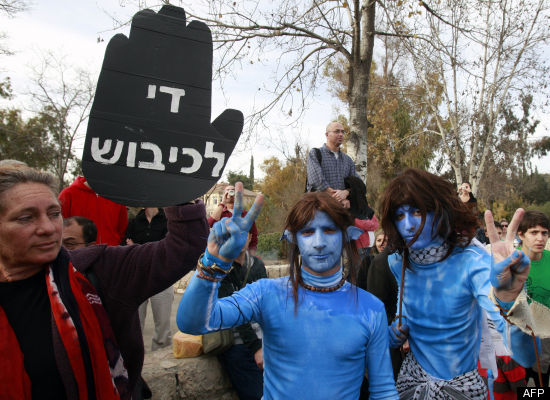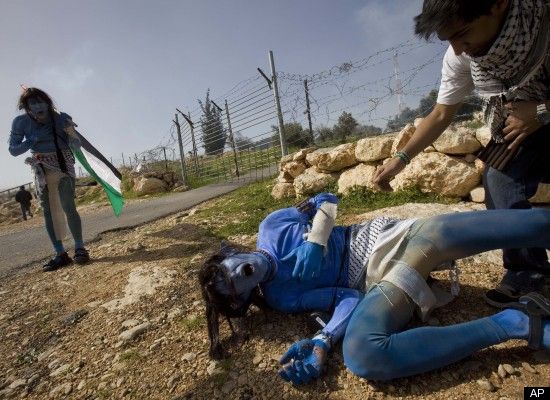More airport security won’t do much to stop terrorists. Leaving the Middle East would
Earlier this week, Osama bin Laden praised the Christmas Day attack in which a Nigerian-born man living in London attempted to blow up a Detroit-bound airplane by igniting explosives in his underwear.
Mr. bin Laden’s endorsement, along with recent attacks in Baghdad, raise concerns about a new round of attacks against the United States. Politicians, security experts, and pundits have therefore called for heightened security measures at airports and on airplanes.
It won’t work without addressing why there are attacks to begin with.
Additional security measures may prevent a few attacks, at least until terrorists learn to circumvent the new policies. But these measures will have little lasting impact, as with many past tactics,
because they do nothing to reduce the demand for terrorism against the US.
If the desire to engage in a certain activity is not reduced, attempts to raise the costs (such as harsher punishment) of such an activity do not matter much.
Consider the evidence from existing policies toward drugs, prostitution, and immigration. In each case, policy tries to ban or limit the activity, hoping to raise the costs of supplying it. Meanwhile, minimal effort is exerted to reduce the demand for intoxication, sex, and a higher income.
The net result is that drugs and prostitution are widely available and the US is home to at least 9 million illegal immigrants. Sure, existing laws may reduce these activities somewhat, but the net impact appears to be minor.
Why?
Desire often trumps law. And it’s just too easy to get around the law. Illegal drugs and immigrants can enter the country along lengthy borders and via sea, air, or land routes. Purveyors of prostitution services have endless means for avoiding even the most robust enforcement effort, from massage parlors to escort services to Internet sex.
Thus governments cannot substantially reduce drug use, prostitution, or immigration by raising the penalty (supply costs): If demand is strong, underground markets will accommodate it. Whether policy should attempt to reduce these demands is a different question. Regardless, policies that only address the supply side cost a lot and afford minimal results.
What does this mean for antiterrorism policy? The same conditions that undermine supply-side policies against drugs, prostitution, and immigration apply here.
There are too many potential terrorist targets and too many ways for terrorists to innovate their tactics for the US government to seriously tackle them all in a meaningful way.
But while not everyone in the US agrees that the drug trade, prostitution, and immigration are something that should be addressed, all Americans want to reduce the number of people or organizations that seek to commit terrorist acts against the US – the demand.
So what can the US do to reduce this demand?
The answer is expeditious withdrawal of US troops from Iraq, Afghanistan, and other Middle Eastern countries, along with cessation of economic and military aid to Israel, Egypt, Pakistan, and the rest of the region.
Legalization of opium growing in Afghanistan, so that Afghan farmers can grow their crops in peace, would also do much to ease tensions.
Ending US interference in the Middle East is a necessary condition for reducing terrorism against the US because Islamic resentment results directly from this interference. The fact that virtually all terrorist attacks against the US since 9/11 have targeted US forces in the Middle East, rather than targets on US soil, suggests the crucial objective is getting the US to leave. Of course, terminating US intrusions in the Middle East will not eliminate antipathy to the US.
Some Muslims, just like some non-Muslims, hate the US merely because it is rich and powerful. But ending US interference – which is not mild or occasional but pervasive and severe – would help achieve a significant reduction in the demand for terrorist acts against us. Numerous examples illustrate this view; terrorist attacks against Britain, for example, were concentrated historically against targets in the Middle East and India, but ceased when the British departed. US withdrawal from the Middle East must, of course, proceed slowly enough to safeguard US troops and equipment, and avoid putting locals in harm’s way. And this withdrawal may initially increase violence and instability, as the remaining factions attempt to consolidate power.
But the existing situation is already unstable and violent, and with continued US presence, this seems likely to persist. So US absence is a recipe for short-term pain but longer-term gain.
Some observers may view a US departure negatively because it appears to leave a mission undone. Many, however, will recognize that the US can no longer do any good – whatever one thinks about the original invasions – and therefore applaud the good sense in cutting losses.
None of this means that all antiterror tactics are ill-advised. Securing cockpit doors on airplanes, expanding the number of air marshals, or allowing security agencies to question terror suspects before handing them over to criminal justice can plausibly yield a good ratio of deterred terrorism to resentment and other costs. Yet these tactics can only do so much as long as the desire to attack the US remains strong.
The US must defend itself against terrorism, but it must do so using tactics that work. When one side of US policy is fanning the flames of anti-US hatred, the other side faces an unwinnable battle in trying to safeguard the country.
By Jeffrey A. Miron
http://www.csmonitor.com/Commentary...top-terrorists.-Leaving-the-Middle-East-would
 Buy on AliExpress.com
Buy on AliExpress.com







